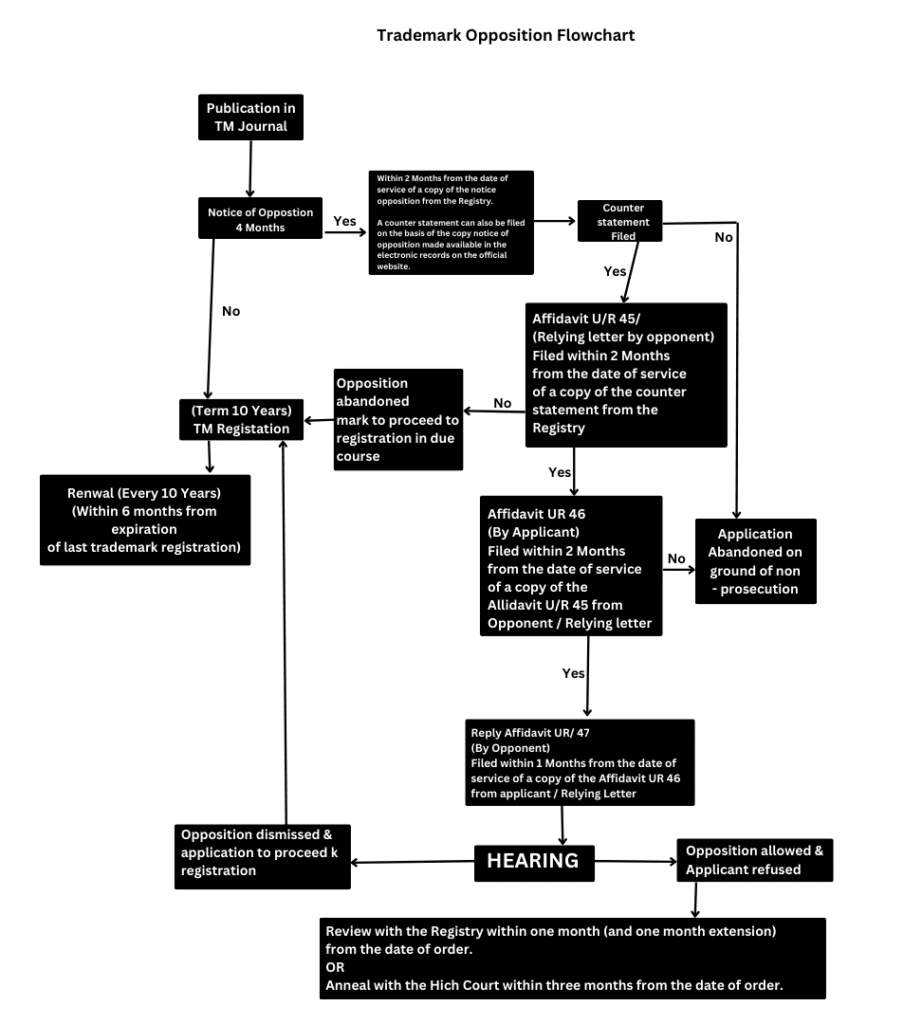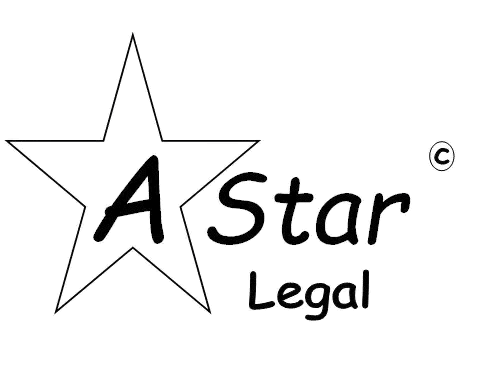Last updated on March 4th, 2025 at 11:56 am
Trademark is a legal challenge to the new trademark which is getting registered. Trademark opposition tells the organization not to register the Trademark that is already registered.
When a company or businesses register for their trademark in the registrar’s office and once the registry office accepts the trademark application, it undergoes an important step- publication of that application in a trademark journal for 4 months. During this whole time, any general individual raises opposition against the trademark.
This step is extremely important in determining whether the trademark application can proceed toward registration or whether objections need to be resolved.
Contact For Trademark Opposition Details:
Table of Contents
ToggleInitiation of Trademark Opposition
- According to the Trademark Act Section 21, 1999, any person is eligible to file an opposition whether it is any trusts, companies, or any other person.
- The person who files the opposition must be an already registered trademark owner.
- After an opposition is filed, the trademark registered owner and the opposing parties must come to a conclusion as to whether the trademark should be abandoned or registered.
- Anyone who believes that a trademark may create confusion in public can raise opposition, while defending of trademark only lies in the registrar’s hands.
Grounds of Trademark Opposition
- The trademark is identical or bears similarity to the existing registered trademark.
- Trademarks are descriptive.
- Trademark does not have distinctiveness.
- Registered trademark application is made with bad intentions.
- The trademark creates confusion or misleading impression among the public.
- The matter of the subject of the trademark hurts the feelings of any class or religion.
- The trademark is unacceptable or suspended under the Emblems and Names Act, of 1950.
Trademark Opposition Required Documents
- Details of Applicant of registering a trademark
- Power of Attorney
- Trademark examination report
- Affidavit
- Details about the Opposed mark
Trademark Opposition Procedure
Initiation of the opposing process: The opposition party initiates the opposition process by filing an opposition file against the registered trademark file in the relevant trademark office with grounds of opposition and supporting evidence.
Respons: After the opposition is filed, the registered applicant has the opportunity to respond to the opposition with the claims and supporting evidence of the registration of the trademark.
Exchanging evidence: Both parties have the opportunity to gather the relevant supporting evidence of their respective actions. And exchange the evidence to prove themselves.
Hearing: After that, if the opposition is not resolved with a settlement, the trademark journal office decides to schedule a hearing, during the hearing, both parties submit their evidence to the trademark office.
Decision: After considering the evidence of both parties and listening to their views, the trademark office decides to reject or accept the opposition file.
Trademark Opposition Flowchart
Trademark Opposition Flowchart Process step by step.

Reasons for Trademark Opposition in India
Similarity with existing registered trademark –
Non-unique designs: A trademark that consists of common shapes and symbols might face opposition and are not registrable.
Descriptive or generic terms: Trademark that describes their goods or services or uses common characters or generic terms, define their lack of distinctiveness, are not generally registered may face opposition.
Offensive trademark: A trademark that contains offensive content and might offend any religious feelings of any particular class, is not registrable.
Bad faith applications: Trademark applications that are made in bad faith may be opposed, such as applications made to prevent the use by another party of a known trademark.
Geographical indications: A trademark that defines fake geographical origins of goods and services may be opposed.
Legal prohibitions: Trademarks that are prohibited by law, including trademarks that are misleading, offensive, or contrary to the public, are not registrable or may face opposition.
Well-known trademark: If the trademark is identical to a known registered trademark, then to protect the legal right of a known trademark owner, that trademark can be objected to.
Application errors: Trademarks that are not registrable, have misleading or fake documents, incomplete information about the brand, and technical errors.
Improper use of national symbols: If a trademark uses national symbols, flags, and emblems without proper authorization, then this type of trademark is not registered.
Trademark Opposition Significance
The trademark opposition process in India makes sure that only eligible trademarks are granted register trademarks. This facilitates public participation and prevents disputed trademarks from accompanying the market. If you are facing trademark opposition or are considering opposing a trademark, seek consultation for expert guidance and assistance throughout the process.
Trademark opposition Timeline
From the date of publication, the trademark opposition time period is for 4 months.
Cost of Trademark Opposition
The cost of Trademark opposition includes the fee for filing a trademark opposition reply, government fees, and class fees.
Trademark opposition proceeding
In a trademark opposition proceeding, If both parties attend the hearing on the given date, they will ask both parties to submit their evidence to the registrar. After viewing the evidence the registrar will decide whether to issue the trademark or not.
Notice for Trademark Opposition
A trademark opposition notice is a document or objection towards the other party for their registered trademark. If a company has a registered trademark and another company also issues the same trademark in that case notice for trademark opposition is provided.
Trademark Opposition Consultant in India
Trademark Opposition Consultant Contact – A Star Legal Associates, Call Now: +91 9314321001
Conclusion
The trademark journal allows anyone to raise an opposition against any trademark. After the opposition filing and hearing, the trademark registrar decides whether the trademark will be registered or not. If the registrar approves the registered trademark file then the trademark certificate is issue. If not then the trademark registration file is reject.
FAQ:
What is the time limit for Trademark opposition?
4 months
How to file a reply to the trademark opposition
After you receive the notice of opposition, the applicant must give a response to the opposition with a registrar within 2 months
What is the cost of trademark opposition?
The cost of Trademark opposition includes the fee for filing the trademark opposition reply class fee and government fee.
What is Trademark opposition?
The trademark opposition is a process in which one party denies the issuance of the trademark by another party. In this case, notice is provided to the other party to not register the same trademark.
What happens after a trademark opposition
When the opposition is file, the trademark applicant will be given a chance to respond, both parties will discuss the issues and submit all the required evidence. In this case, if the opposition is successful the trademark will not be issue. If the file is unsuccessful the trademark will be registered to the opposite party.
Opposed meaning in trademark
A legal challenge filed against your registration by a third party.







